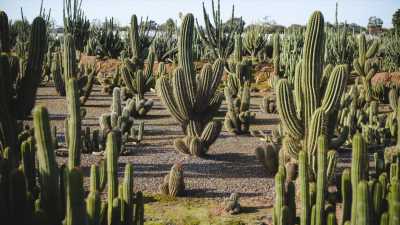London: Plants were generally thought to be an uncomplaining bunch, silently enduring the ravages of neglect, drought or disease with stoicism.
Now scientists have discovered that they cry out when distressed or need watering, even though humans cannot hear their high-pitched emergency calls. Recordings of tomato, tobacco, wheat, corn and cactus show that they make occasional ultrasonic popping noises – similar to bubble wrap – which ramp up when under stress.
Can tomatoes cry? These are ripening on a vine in a greenhouse production facility in Wittenberg, Germany.Credit:Bloomberg
The sounds are comparable in volume to human conversation, but are too high for us to detect. However, it is likely they can be heard by insects, other mammals, and possibly other plants.
“An idyllic field of flowers can be a noisy place, it’s just that we can’t hear the sounds,” said Professor Lilach Hadany from the School of Plant Sciences and Food Security at the Wise Faculty of Life Sciences, Tel Aviv University.
“Our findings suggest the world around us is full of plant sounds, and that these sounds contain information – for example, about water scarcity or injury. We assume that in nature the sounds emitted by plants are detected by creatures nearby, such as bats, rodents, various insects, and possibly also other plants that can hear the high frequencies and derive relevant information.”
To find out, the team placed plants in an acoustic box in an isolated basement with no background noise. Ultrasonic microphones recording sounds at frequencies of 20-250 kilohertz were set up 10 centimetres from each plant. The maximum frequency detected by a human adult is around 16 kilohertz.
Each plant has its own distressed calls. Cactus, for example, sound different to other plants. Credit:Visit Victoria
The plants were subjected to different treatments. Some had not been watered for five days, while others had their stems cut. A control group was left untouched. The recordings showed the plants emitted sounds at frequencies of 40-80 kilohertz with unstressed plants making a click less than one sound per hour, on average, while the stressed plants emitted dozens of sounds every hour.
Water-stressed plants began emitting noises before they were visibly dehydrated, and it was also possible to identify the plant, as well as what type of stress it was suffering from.
For example, a dehydrated tomato plant made a different pattern of clicks to a dehydrated cactus. Happy plants tended to be very quiet.
The team hopes that it may become possible to monitor plants and determine if they are struggling based on the noises. For example, sound recordings could be used in agricultural irrigation to monitor crop hydration and help distribute water more efficiently.
How the plants make the noises is unclear, but the researchers suggest the popping may be caused by the formation and bursting of air bubbles in the plant’s vascular system. The research was published in the journal Cell.
The Telegraph, London
Get a note directly from our foreign correspondents on what’s making headlines around the world. Sign up for the weekly What in the World newsletter here.
Most Viewed in World
From our partners
Source: Read Full Article




